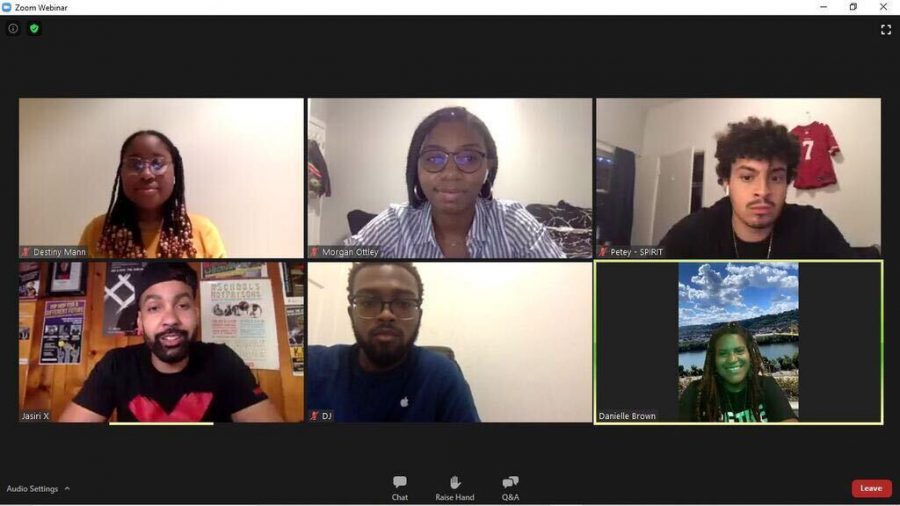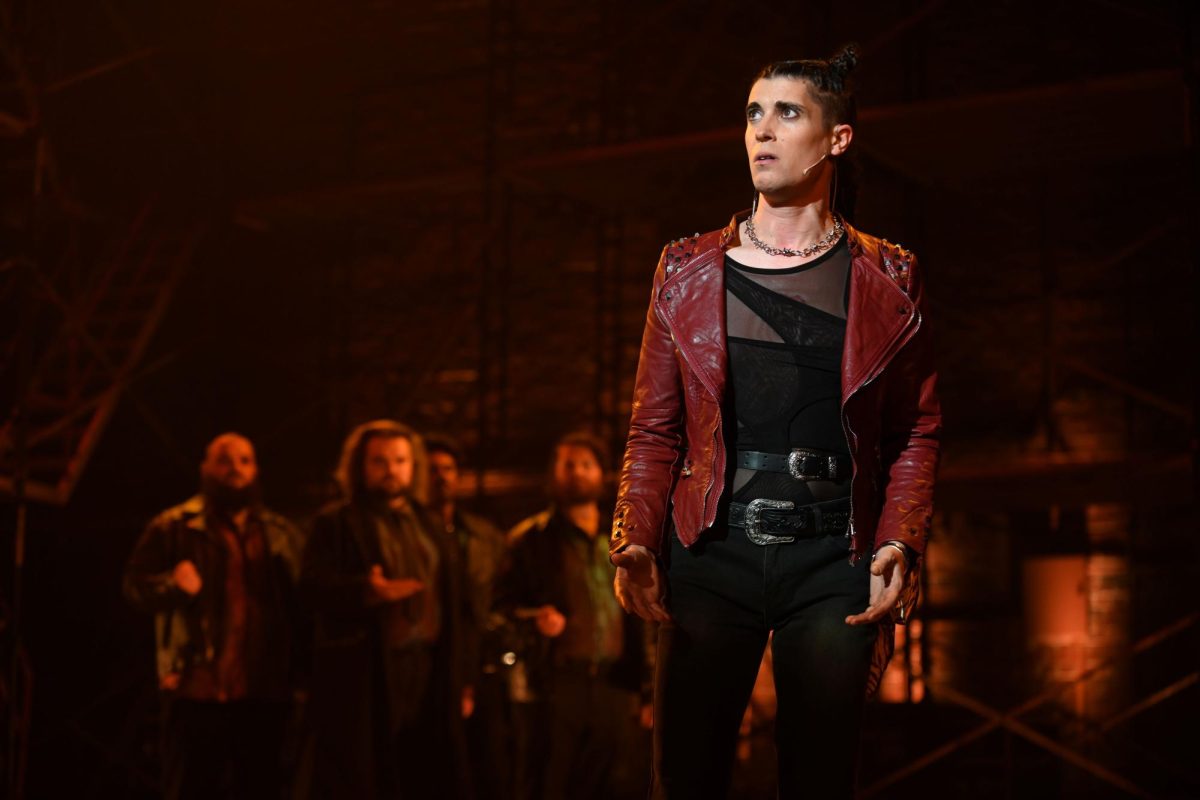‘No way we can do this alone’: Panel uplifts local Black student leaders
Black student leaders from colleges around Pittsburgh came together to discuss racial equity on their respective campuses. Jasiri X, the executive director and co-founder of 1Hood Media, moderated the event.
August 30, 2020
For Morgan Ottley, a student leader at Pitt, advancing racial justice on campus is a collective effort.
“One thing I always say is that there is strength in numbers,” Ottley, a senior neuroscience major, said. “Having spaces where large amounts of people can come together really builds community engagement and unity.”
Collective action was one of the main themes at the Solidarity Town Hall held Saturday evening, where Black student leaders from colleges around the City came together to discuss racial equity on their respective campuses. Jasiri X, the executive director and co-founder of 1Hood Media, moderated the event.
Organizers dedicated a large portion of the event to Danielle Brown, the mother of Marquis Jaylen Brown. Brown is currently on the 58th day of her strike at the Hill District’s Freedom Corner in response to her son’s October 2018 death at Duquesne University.
Brown joined the call from Washington, D.C., where she had taken part in the large rally for social justice on the 57th anniversary of the historic March on Washington. She mentioned repeatedly that her guiding force was the need for answers and justice and said the fight for justice is one that has continued since the moment she heard her son had passed away.
“A lot was happening. A lot of questioning, a lot of waiting, a lot of suffocating, a lot of trying to put pieces together and not having the information,” Brown said. “The agony, the torture that goes on behind the scenes when you simply don’t know what happened to your child.”
The frustration and anger was palpable, as she shared details of the night her son died. Brown said she empathizes with other mothers who have lost their sons.
“There are a lot of grieving mothers out there, and it hasn’t let up since Jaylen,” Brown said. “Even starting with Antwon Rose, the killings have gotten worse and more public.”
Ottley said she sees direct parallels between Brown’s calls for change at Duquesne University and demands that Pitt’s Black Action Society and 17 other Black student organizations sent to Pitt over the summer. The wide-ranging list of more than 20 demands touched on topics including amplifying the Black student voice, increasing the number of Black students and faculty, curriculum changes, additional training for employees and Pitt police reforms.
Destiny Mann, a student leader at Pitt, said the groups have met with senior administrators and other professors, faculty and staff to figure out the changes necessary to make Black students feel safe and fairly treated.
“We’ve been challenging the University to do better and have been engaging in multiple interviews, meetings and such so that this University knows that the Black student population is not happy,” Mann, a junior political science and Africana Studies double major, said. “We’re not going to quiet down until real change occurs.”
Throughout the meeting, attendees sent in comments of support, as well as questions. Many wanted to know the ways they could help Brown’s cause and also continue to support her call to action in their own communities. In response, Brown shared pieces of advice — questioning narratives from institutions, being intentional in actions, using one’s economic power and being creative with actions.
“As students, you all are freedom fighters,” Brown said. “You know your school environment, you know what you’re dealing with and you know what you can do.”
Other universities across Pittsburgh are engaging in similar fights for racial justice. Kayla Harris, a student leader at Duquesne, said Black students struggle at Duquesne because the university is predominantly white.
“It is very difficult to get minority students’ voices heard as well as amplified,” Harris said.
In an effort to amplify minority students’ voices, Duquesne students are working on identifying and addressing issues on campus that affect all students, such as safe spaces and mental health resources.
“We have a weekly session for minority students to come and basically be themselves, be vulnerable and share their experiences,” Darian Reynolds, a Duquesne student leader, said. “[The assistant director] is a Black male too, so that definitely helps us be able to talk about those things you normally wouldn’t talk about with anyone else.”
Brown also said she encourages students to attend a Sept. 11 march she is organizing to connect students at all local universities. The march is planned to start at Carnegie Mellon University and collect students from each campus on a walk to Point State Park in Downtown.
Along with marching, Ottley said showing up to events and listening to messages being shared is something all Pitt students should do.
“I think attending events like this town hall, showing support, being present in the room says a lot more than people think,” Ottley said. “There’s no way we can do this alone.”
A previous version of this story misspelled Darian Reynolds’ first name. The article has been updated to reflect the proper spelling. The Pitt News regrets this error.



